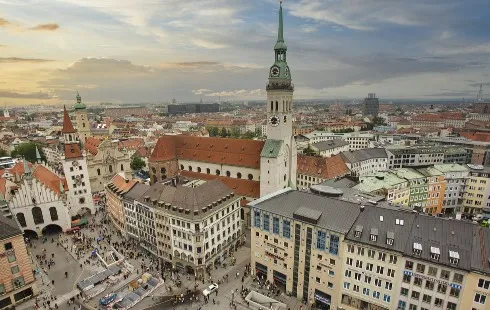
Gonadorelin Peptide: A Gateway to Understanding Endocrine Dynamics
Section: Science
In a significant announcement during the NATO meeting held in Antalya, Turkey, German Foreign Minister Johann Wadephul has pledged that Germany will allocate five percent of its Gross Domestic Product (GDP) towards defense spending. This commitment comes after discussions with U.S. Secretary of State Marco Rubio, and while it may seem like a concession to U.S. President Donald Trump's demands, it reflects a calculated strategy to strengthen transatlantic ties ahead of the upcoming NATO summit in The Hague.
Currently, Germany struggles to meet the existing NATO guideline of two percent of GDP for defense. The ambitious goal of reaching five percent by 2032 raises questions about financial feasibility. However, this move is perceived as a diplomatic gesture aimed at reassuring the U.S. and solidifying Germany's role within NATO.
Under the proposed framework, NATO member states will be encouraged to invest 3.5 percent of their economic output into military capabilities, alongside an additional 1.5 percent dedicated to civil infrastructure that serves military purposes. This could include enhancements to transport routes suitable for military logistics, emergency response efforts, and intelligence operations.
The new NATO Secretary-General Mark Rutte is believed to have developed this proposal, which has garnered some openness from U.S. officials. Matthew Whitaker, the U.S. NATO Ambassador, indicated that the focus should extend beyond traditional military hardware to include aspects like military mobility and cybersecurity.
Achieving the five percent target would require substantial financial resources, with recent estimates from Chancellor Friedrich Merz suggesting that each additional percentage point would necessitate an investment of approximately 45 billion euros. Thus, reaching the five percent threshold would imply a staggering 225 billion euros in annual defense spending.
Germany currently invests around 100 billion euros in defense and security when considering civil protection measures. This existing expenditure could aid in meeting the proposed five percent target, particularly through the anticipated 1.5 percent allocation for civil security expenditures, which Germany is already largely covering.
Before this ambitious plan can be realized, the current coalition government must navigate internal political dynamics. The SPD, led by Vice Chancellor Lars Klingbeil, is cautious about rushing into numerical commitments without first assessing the outcomes of the NATO summit. Klingbeil called for restraint in making financial predictions until more information is available.
There are also concerns within the coalition regarding the implications of such a significant increase in defense spending. Some members, including those within the SPD, have expressed skepticism about the feasibility and necessity of Trump's proposed budgetary levels, suggesting that these figures may exceed reasonable expectations.
The Greens, who had previously supported increased defense spending through constitutional amendments, are also wary. They emphasize that defense expenditures should align with specific NATO capability goals rather than being driven by external pressures from Washington.
As the German government prepares for discussions with its NATO allies, the implications of this potential increase in defense spending remain a contentious topic. The outcome of the NATO summit will play a critical role in shaping Germany's defense strategy and its relationship with allies.

Section: Science

Section: Health

Section: Arts

Section: Health

Section: Science

Section: News

Section: News

Section: Health Insurance

Section: Health

Section: News
Health Insurance in Germany is compulsory and sometimes complicated, not to mention expensive. As an expat, you are required to navigate this landscape within weeks of arriving, so check our FAQ on PKV. For our guide on resources and access to agents who can give you a competitive quote, try our PKV Cost comparison tool.
Germany is famous for its medical expertise and extensive number of hospitals and clinics. See this comprehensive directory of hospitals and clinics across the country, complete with links to their websites, addresses, contact info, and specializations/services.
The granddaughter of Claire Zachanassian makes a return to Güllen, the impoverished hometown of her late grandmother, for a performance. Having never fully engaged with her grandmother's past, she is eager to finally discover Güllen. The sound of her last name stirs the entire town into action.



No comments yet. Be the first to comment!